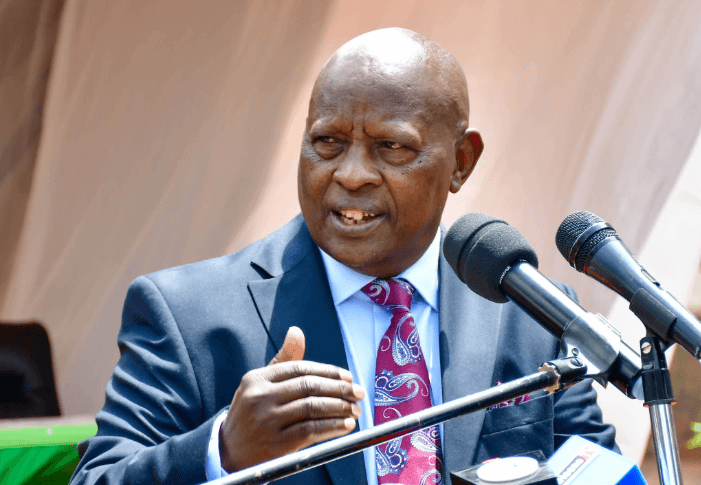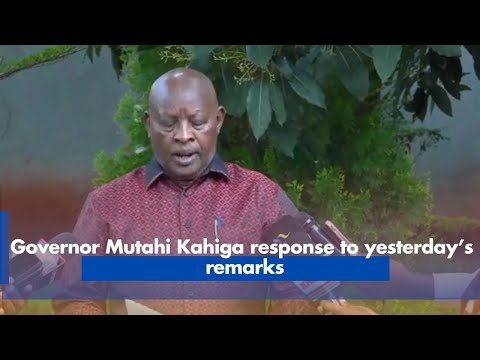The Galana Kulalu food security project that many Kenyans thought was a white elephant project has been endorsed by Opposition leader Raila Odinga.
The National Assembly Agriculture Committee has also given the Sh7.2 billion food security project the green light.
This is despite the current stand-off between the National Irrigation Board and the Israeli contractor Green Arava.
Raila visited the project in Kilifi and Tana River counties for the first time on August 29.
During the tour, Raila said he will soon be calling for a meeting with the two aggrieved parties to seek a solution to the fallout.
“Challenges that have marred this project should be discussed among all the stakeholders to pave way for the conclusion of the project and other phases as it had earlier been envisioned," he said.
He said he has seen evidence Galana Kulalu is doable if there is will and commitment.
It marks a turnaround from his stand two years ago, before the handshake, when Raila said the project was "not value for money".
In a press statement posted on his Facebook page on April 11, 2017, Raila accused the Jubilee government of having nothing to show for the billions spent on the project.
“The Galana-Kulalu Irrigation Scheme produced ten 90-kilogram bags of maize per acre instead of the 40 bags per acre that was projected. Once again, no value for money,” the statement read.
But last week, Raila called upon Kilifi and Tana River county governments to play their role in ensuring the project's success, including installing proper infrastructure and training centres.
In June, Agriculture CS Mwangi Kiunjuri said NIB had taken full charge of the 10,000-acre model farm irrigation project until further notice.
On May 24, NIB officials and the contractor appeared before the Senate Agriculture Committee to answer queries about the delayed payments. The contractor claimed NIB owes them Sh1 billion, but the board claimed it owed the contractor Sh200 million.
Irrigation PS Fred Segor said the two parties are currently in talks to try and resolve the issues by next month.
“But meanwhile, the ministry has to ensure that production continues and that the equipment at the model farm is put in use,” the PS said.
NIB chairman Eng Joshua Toro said the board (now transitioned to Authority) has started the first harvest since NIB took over crop production at Galana Kulau from Green Arava in May.
CONTRACTOR KICKED OUT
Kiunjuri said Sh5.9 billion has so far been spent on Galana, yet little has been done. “We have taken a risk and directed NIB to take over planting and kicked out the contractor,” the CS said.
“I can assure you we are going to make a breakthrough. Over the years we have been making losses, but this year, with a promising season and proper supervision from the government, we are going to prosper.”
NIB took over production activity after the exit of the Israeli contractor Green Arava late last year, but the chairman Yariv Kedar said 24 of the company's employees are still on site. “We are still at the site and have never left,” he said.
NIB chair Toro said 2,100 acres are currently under crop, and they are targeting to utilise the entire installed infrastructure that can command up to 5,100 acres.
The crops under irrigation are 1,700 acres of maize, 200 acres of cotton, 120 acres under legumes and 80 acres of pasture. “The 10,000 acres model farm is currently at 85 per cent completion on infrastructure and 51 per cent complete in irrigation,” he said.
In his tour, Raila was accompanied by Kilifi Governor Amason Kingi and his Tana River counterpart Dhadho Godhana, National Assembly Agriculture Committee members and other local leaders.
Kingi said running the Galana Kulalu project is not rocket science, and the project should be handed over to the two counties where it is based.
He said if handed over to the counties, they will in five months produce enough food to feed the entire nation.
“Since agriculture is devolved, our plea to the President is that the project should be handed over to the two and in the few months, we will show you the results. We will feed the entire country and our neighbours. If we fail, then the national government should take the project back,” Kingi said.
The governor dismissed claims that the two counties lack the capacity to run the project, saying the national government also lacked the capacity at the start of the project. He said corruption has been the only stumbling block for the project.
WHY PROJECT STALLED
NIB general manager Mugambi Gitonga said the original contract total cost for Galana Kulalu was Sh14.5 billion, but it was later reviewed to Sh7.2 billion. This being finance from the Government of Kenya and a loan from the Bank of Leumi of Israel at a cost of $71 million.
Currently, Sh5.9 billion has been spent, with Sh2.55 billion from Kenya and Sh3.4 billion being a loan from Bank Leumi.
Gitonga said the project commenced in November 2014 and was expected to end in March 2017. It was then extended to January 2018, but the contractor declined to proceed with work.
“In May 2019, the contractor was issued with a notice of termination, and a performance bond of Sh97 million was recalled from the bank after the contractor declined to extend. The CS for Agriculture has been spearheading discussion to find a way forward with officials from the Office of the President, Attorney General, the National Treasury and NIB,” Gitonga said.
He explained that the stalemate between the contractor Green Arava and NIB started when the contractor failed to account for payments done to him to engage experts on the farm.
“The contractor has failed to agree to fixed rates for new items in the contract. Instead, he was demanding to be paid very high rates, for example, demanding to be paid Sh50 million for a drier, which costs Sh4 million in Turkey,” he said.
Other reasons for the delay of the project, according to NIB, are failure to rehabilitate the intake works after May 2018 floods and instead proposed variation of contract by Sh700 million, which NIB rehabilitated at a cost of Sh38 million.
In July 31, the team had presented a report to the Agriculture CS with recommendations on the way forward.
The recommendations stated that there should be government to government bilateral negotiations through the Foreign Affairs ministry, and that National Treasury should negotiate with Bank Leumi of Israel to use existing facilities to finance another contractor.
The team also recommended that the contractor be allowed to complete the pending works, but the contactor did not agree to this. This meant that further negotiations had to continue, and so far no agreement has been reached.










